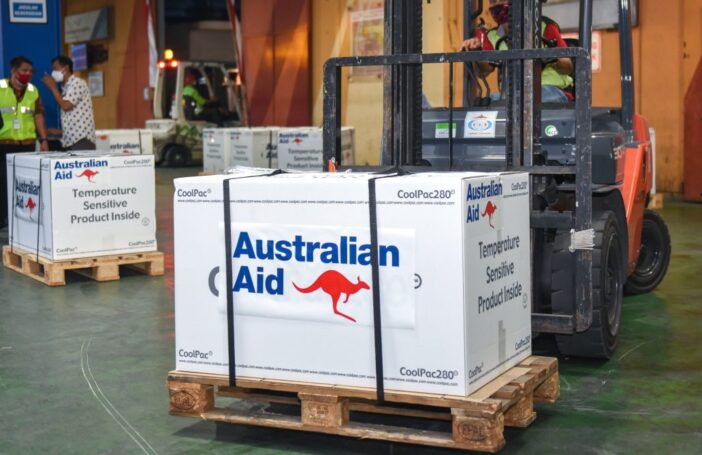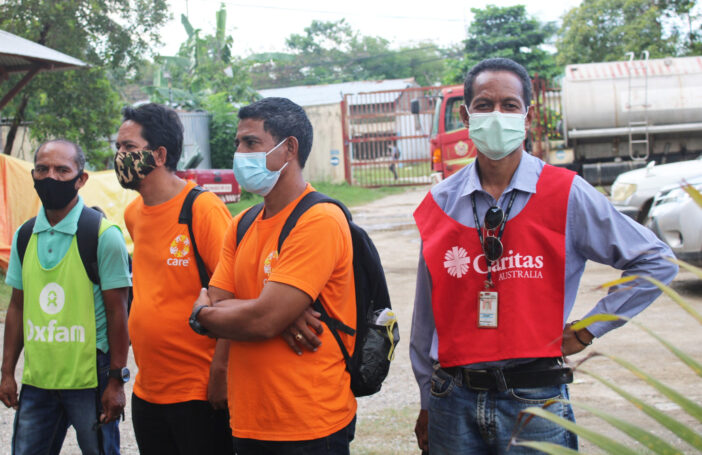Civil society in the Indo-Pacific is frequently viewed through several narrow frames: as a counterweight to government, as a low-cost substitute for public service delivery or as a box to tick in participatory consultations.
Each of these roles matters. Civil society often does play an important role in resisting authoritarian drift, filling important gaps in social service provision and legitimising public decision-making.
But these familiar frames — including outdated dichotomies such as “human rights defenders” versus “service providers” — are often narrowly applied and capture only a fraction of what civil society actually does and the politics of the contexts in which they operate.
Across the region, civic actors are far more diverse, adaptive, politically engaged and technically capable than donors and policymakers often acknowledge. This is an important point to highlight right now because the Australian government is in the process of establishing a Civil Society Partnership Fund. First committed to in the 2023 International Development Policy, with a budget of $35 million over four years announced in August 2024, the fund is set to “address the challenges of shrinking civic space in the Indo-Pacific region”.
To ensure the effectiveness of this welcome initiative, it must help shift how civil society is perceived, valued and supported.
That means recognising, first, the power differentials within civic spaces. Civil society does not exist in a vacuum. Its space is shaped by power relations between governments, private sector actors and communities. Often donor frameworks assume, however, that civil society’s main purpose is to push back against state power. While constructive opposition is important, the reality is more complex: civil society frequently negotiates, mediates and even partners with both government and business; thinking and working politically to achieve collective goals.
Examples across Asia and the Pacific illustrate this dynamic. In Indonesia, legal reform groups have worked within prosecutorial offices to change guidelines, ensuring fairer outcomes for women and children in criminal cases. In the Philippines, coalitions of civic, government and private actors have improved subnational governance, creating space for dialogue across unequal actors. In the Pacific, civic actors are active participants in complex climate negotiations at a global level, working alongside governments. Change in such contexts is rarely a matter of outright resistance — it emerges from negotiation, partnership and mediation.
While civil society can be a vital counterweight and innovator, it is important to acknowledge that it is also shaped by the same incentives, compromises and power dynamics that characterise the wider governance ecosystem.
Second, civic spaces in the region are populated by a remarkably diverse group of actors: from urban NGOs to rural cooperatives, youth movements on digital platforms, faith-based charities, trade unions, sports clubs and professional associations. Many pursue increasingly sophisticated strategies to achieve collective goals, even in the face of shrinking space.
In Nepal, community mediation has blended grassroots dispute resolution with formal legal frameworks, easing the burden on courts while strengthening local cohesion. In Mongolia, youth-led organisations have pioneered voter education and accountability initiatives, broadening democratic participation. In Cambodia, advocacy groups documented the vulnerabilities of tuk-tuk drivers and street vendors during the COVID-19 pandemic, shaping debates on social protection and welfare reform.
These cases are not isolated. They show a civil society that is adaptive, innovative and multi-scalar — reshaping governance and policy from the ground up, often out of the line of sight of formal politics.
Third, donors frequently frame civil society organisations as advocates or mobilisers. But this overlooks another critical dimension: their technical expertise. Civil society is not just a force for normativity; it is a repository of knowledge and skills that governments and markets often lack. In Sri Lanka, gender-focused organisations have provided indispensable technical input to justice reforms, striving to make laws more responsive to women and children. In Fiji, community-led and women’s movements have illuminated the dynamics of the care economy, linking labour mobility and climate change in ways state and market actors rarely manage.
Local organisations in many Pacific Island countries have integrated traditional ecological knowledge into modern scientific tools for disaster preparedness, to hone early warning systems and make them more effective. Indeed, integration of traditional knowledge with scientific expertise is an important contribution that civil society makes across the Indo-Pacific region.
Such contributions should not be seen as marginal. They are policy-shaping, life-saving and deeply practical. To sideline this expertise means failing to build upon some of the region’s most valuable assets.
If the new Australian NGO funding platform falls back on outdated frames of reference for engaging with civil society it risks reinforcing the very asymmetries that constrain civic space. At the same time, it should avoid viewing civil society through rose-coloured glasses. It is shaped by the same incentives, compromises and elite bargains that influence any governance system. Understanding this complexity is critical if Australia’s support is to be effective.
There is an opportunity to acknowledge power differentials by analysing political economy dynamics and supporting civil society organisations’ roles as mediators and facilitators between government, business and communities, not just as watchdogs.
It should value diversity and sophistication by investing in a wide range of actors, including grassroots and digital movements, and supporting coalitions that work across scales and sectors.
Equally importantly, it should be recognised as a repository of technical expertise. Specialist capabilities include mediation frameworks, rights-based law reform, disaster risk reduction, environmental impact monitoring, natural resource management, election monitoring, social auditing, gender-based violence services, conflict mediation, social cohesion frameworks and peacebuilding methodologies.
Civil society in the Indo-Pacific is neither monolithic nor passive. It is diverse, adaptive and often highly technically capable, even in restrictive political environments. A donor platform that embraces this reality will seize an opportunity to reinvigorate and reimagine the region’s civic spaces as arenas of constructive debate and contestation, negotiation, innovation and deep expertise.





Nice piece, folks, and hope you are all well.
You have me now questioning to what extent we are actually also a civil society organisation or some form of unique enabler in that space, both in Australia and regionally, given our various activities.
Thank you, very well put. I believe that in Western Pacific countries, civil society actors are the under utilised sleeping giant that holds the key to turning youth unemployment and essential service delivery around. It is time to mobilise that resource.